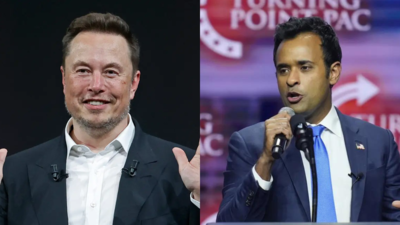
Elon Musk and Vivek Ramaswamy, co-leaders of President-elect Donald Trump’s so-called Department of Government Effectiveness, said Wednesday they support requiring federal employees to work in the office five days a week as a move against the civilian system. part of wider reforms.
The change could lead to “a wave of voluntary terminations that we welcome,” they wrote in a Wall Street Journal opinion column.
“American taxpayers should not be paying for the privilege of staying home during the coronavirus era if federal employees don’t want to show up,” they wrote.
In their columns, Musk and Ramaswamy described some of the early goals of the unit, which Trump has said will operate outside the government and provide input to federal officials. Musk pledged to cut $2 trillion from the annual U.S. budget and said the government only needs 99 agencies instead of more than 400.
Part of the group’s mission – reducing the number of federal regulations – would “provide a sound industrial logic for massive layoffs throughout the federal bureaucracy,” Musk and Ramaswamy wrote. These people have been recommending that Trump’s transition team hire what they call “small government warriors” to work with the White House Office of Management and Budget.
To effectuate the reductions, federal appointees working with the Efficiency Division will determine the minimum number of employees required to perform “constitutionally permissible and statutory functions” and reduce the number of employees proportionally to the number of regulations repealed, Musk and Ramaswamy wrote.
Ramaswamy has outlined his support for a five-day work week for federal agencies, recently telling Tucker Carlson that such a mandate could lead to “a 25 percent streamlining of the federal bureaucracy.”
A report released earlier this year by the U.S. Office of Management and Budget found that federal employees who are eligible to work remotely still spend more than 60% of their working time in the office. Of the 2.3 million civilian workers working for the government in May, 1.1 million were eligible to work remotely and about 228,000 were eligible to work fully remotely, the report said.
“Laid-off employees should be treated with respect,” Musk and Ramaswamy wrote, adding that the efficiency unit would “help support their transition to the private sector.” “The president could use existing laws to incentivize them to retire early and pay severance voluntarily to facilitate a graceful exit,” they wrote. The New York Times







